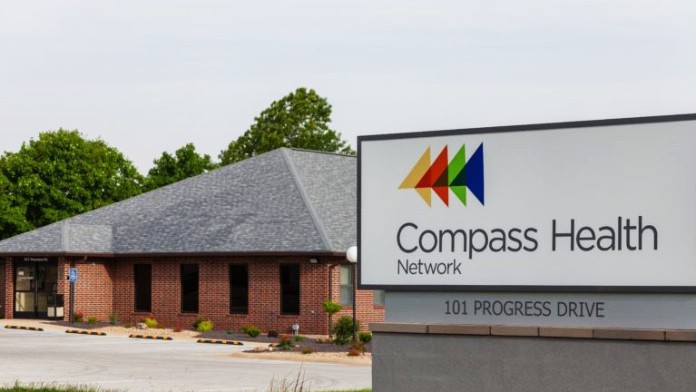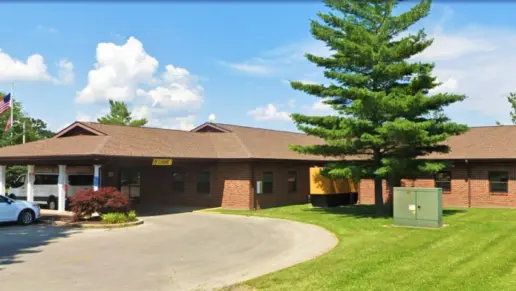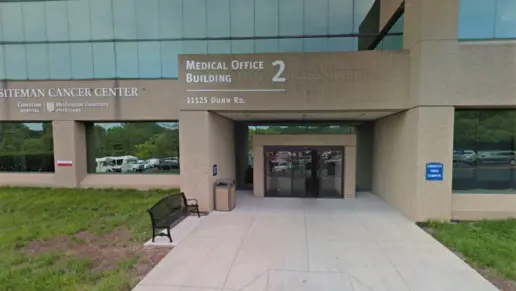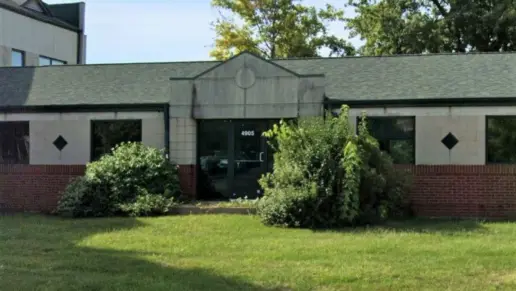About Compass Health Network
Compass Health Network offers comprehensive health care services including behavioral health and substance use disorder treatment. The network has several facilities throughout Missouri, including the facility on Progress Drive in Sullivan.
The Progress Drive facility has outpatient behavioral health and substance use disorder treatment services for adolescents and adults, including medication assisted treatment (MAT). The facility accepts insurance and is an in network provider for most major commercial providers. They don’t accept Medicaid or Medicare.
The facility on Progress Drive has behavioral health and substance use treatment on Monday, Thursday, and Friday from 8:00 a.m. to 5:00 p.m., Tuesday from 7:00 a.m. to 5:00 p.m., and Wednesday from 8:00 a.m. to 5:30 p.m. Services are for adolescents and adults. The outpatient services include a comprehensive assessment for co occurring mental health disorders. Co occurring disorders include mental health challenges such as anxiety, depression, schizophrenia, bipolar disorder, and other mental health issues.
If you need MAT or other mental health medications, you’ll have access through the psychiatry services. Treatment at this clinic is based on the belief that addiction is not only a physical and biological disease but also a psychological and social disease and requires a holistic approach.
Holistic services take the whole body into account through person centered care. MAT uses medication to manage your opioid withdrawal symptoms. MAT also uses a comprehensive approach with individual and group counseling and peer specialists.
While in the outpatient substance use treatment program, you’ll have group education, group counseling, and peer support. You’ll also participate in individual counseling.
Addiction is a family disease and the program includes family and co dependent counseling to identify your family’s involvement in your addiction. Through the outpatient programs, you can get help for your substance use and co occurring mental health challenges while working or taking care of daily responsibilities.
Rehab Score
Gallery

Location
Other Forms of Payment
Private insurance refers to any kind of healthcare coverage that isn't from the state or federal government. This includes individual and family plans offered by an employer or purchased from the Insurance Marketplace. Every plan will have different requirements and out of pocket costs so be sure to get the full details before you start treatment.
Self-pay involves paying for treatment out of your own pocket. You can use savings or credit, get a personal loan, or receive help from family and friends to fund your treatment. If you don't have insurance or your insurance plan doesn't cover a specific program, self-pay can help ensure you still get the care you need.
Financial aid can take many forms. Centers may have grants or scholarships available to clients who meet eligibility requirements. Programs that receive SAMHSA grants may have financial aid available for those who need treatment as well. Grants and scholarships can help you pai for treatment without having to repay.
Sliding scale payments are based on a client's income and family size. The goal is to make treatment affordable to everyone. By taking these factors into account, addiction recovery care providers help ensure that your treatment does not become a financial burden to you or your family, eliminating one barrier to care.
Medicare is a federal program that provides health insurance for those 65 and older. It also serves people under 65 with chronic and disabling health challenges. To use Medicare for addiction treatment you need to find a program that accepts Medicare and is in network with your plan. Out of pocket costs and preauthorization requirements vary, so always check with your provider.
Military members, veterans, and eligible dependents have access to specific insurance programs that help them get the care they need. TRICARE and VA insurance can help you access low cost or no cost addiction and mental health treatment. Programs that accept military insurance often have targeted treatment focused on the unique challenges military members, veterans, and their families face.
Medicaid is a state based program that helps lower-income individuals and families pay for healthcare. Medicaid covers addiction treatment so those enrolled can use their coverage to pay for rehab. When a program accepts Medicaid the client often pays very little or nothing out of their own pocket.
Addiction Treatments
Levels of Care
Treatments
Many of those suffering from addiction also suffer from mental or emotional illnesses like schizophrenia, bipolar disorder, depression, or anxiety disorders. Rehab and other substance abuse facilities treating those with a dual diagnosis or co-occurring disorder administer psychiatric treatment to address the person's mental health issue in addition to drug and alcohol rehabilitation.
Mental health rehabs focus on helping individuals recover from mental illnesses like bipolar disorder, clinical depression, anxiety disorders, schizophrenia, and more. Mental health professionals at these facilities are trained to understand and treat mental health issues, both in individual and group settings.
Programs




Clinical Services
The goal of cognitive behavioral therapy in Missouri is to help clients change their thinking and behavioral patterns. Strategies of treatment include role playing, facing fears, and calming techniques.
Dialectical Behavior Therapy (DBT) is a modified form of Cognitive Behavioral Therapy (CBT), a treatment designed to help people understand and ultimately affect the relationship between their thoughts, feelings, and behaviors. DBT is often used for individuals who struggle with self-harm behaviors, such as self-mutilation (cutting) and suicidal thoughts, urges, or attempts. It has been proven clinically effective for those who struggle with out-of-control emotions and mental health illnesses like Borderline Personality Disorder.
Group therapy is any therapeutic work that happens in a group (not one-on-one). There are a number of different group therapy modalities, including support groups, experiential therapy, psycho-education, and more. Group therapy involves treatment as well as processing interaction between group members.
In individual therapy, a patient meets one-on-one with a trained psychologist or counselor. Therapy is a pivotal part of effective substance abuse treatment, as it often covers root causes of addiction, including challenges faced by the patient in their social, family, and work/school life.
Trauma therapy addresses traumatic incidents from a client's past that are likely affecting their present-day experience. Trauma is often one of the primary triggers and potential causes of addiction, and can stem from child sexual abuse, domestic violence, having a parent with a mental illness, losing one or both parents at a young age, teenage or adult sexual assault, or any number of other factors. The purpose of trauma therapy is to allow a patient to process trauma and move through and past it, with the help of trained and compassionate mental health professionals.
Children and Family Services for Psychiatric Health and Wellness is a strength-based, family driven program that works in collaboration with families, schools, the juvenile justice system, the Children’s Division and other child serving agencies to provide a comprehensive system of care for the child and their family in an effort to keep children and youth safe, at home, in school and becoming productive members of the community.
Life skills trainings involve all the skills a person must have in order to function successfully in the world. These include time management, career guidance, money management, and effective communication. Truly successful addiction recovery is based on the ability to not only live substance-free, but to thrive. Life skills teaches the practical necessities of functioning in society, which sets clients up for success in life, and therefore sobriety.
Accreditations

The Joint Commission, formerly known as JCAHO, is a nonprofit organization that accredits rehab organizations and programs. Founded in 1951, the Joint Commision's mission is to improve the quality of patient care and demonstrating the quality of patient care.
Joint Commission Accreditation: Yes
Contact Information
101 Progress Drive
Sullivan, MO 63080


